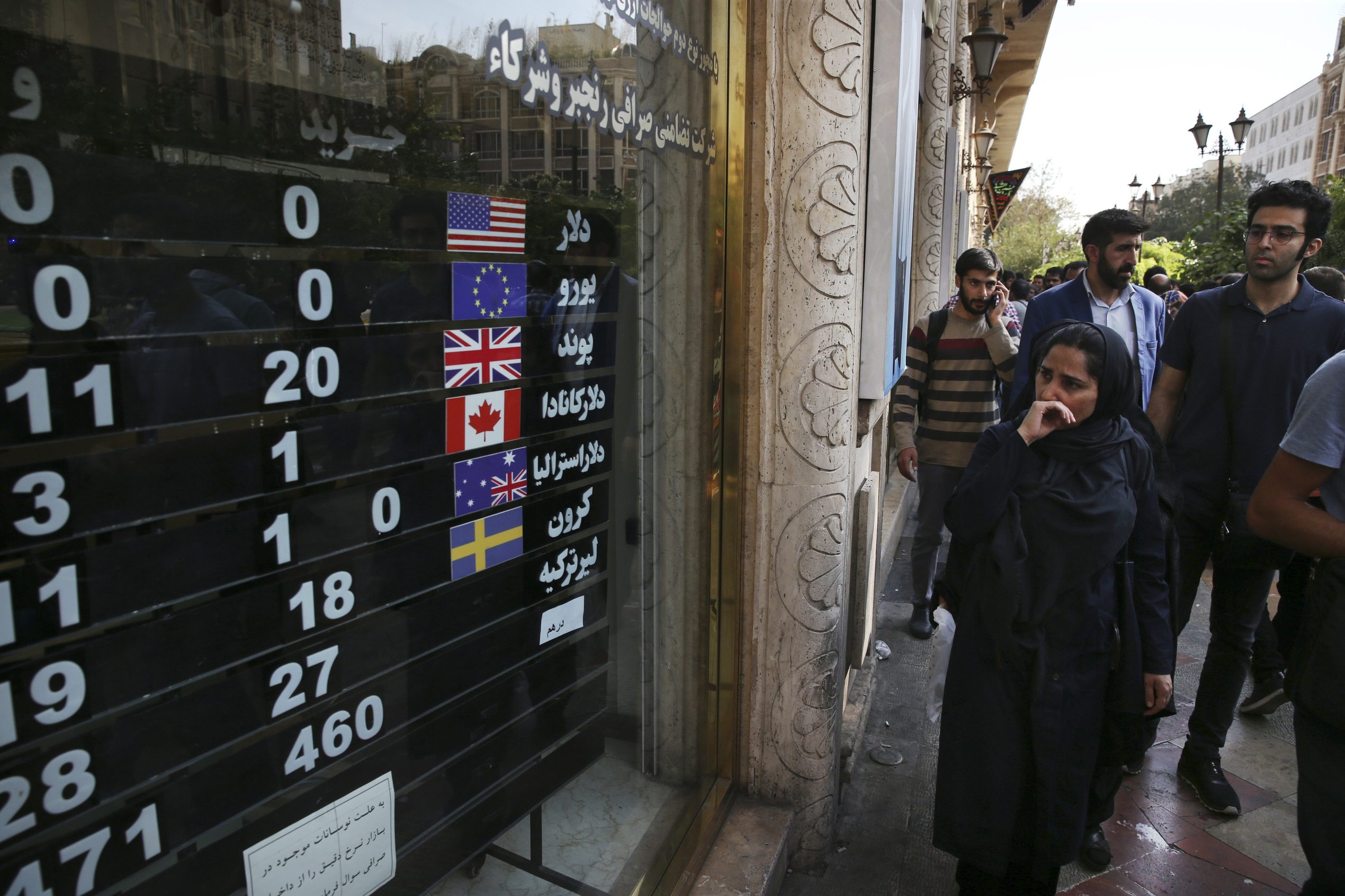
Trump warns Europeans not to try to evade Iran sanctions
WASHINGTON (AP) — The Trump administration is closely eyeing efforts in Europe to set up an alternative money payment channel to ease doing business with Iran and avoid running afoul of sanctions the U.S. has levied on the Islamic republic.
The White House is putting the Europeans on notice, saying that if they try to do an end-run around U.S. sanctions on Iran, they will be subject to stiff fines and penalties. Unfazed, the European Union is marching forward with the plan, which, if implemented, could further strain trans-Atlantic relations.
German Foreign Minister Heiko Maas said Monday that the EU was on the verge of setting up the alternative channel to send money to Iran that would side-step U.S. sanctions on Tehran. He said Germany had been working on it in recent months with Britain, France and other EU partners.
“This has always been our goal and we will implement it,” Maas said.
The EU has struggled to keep alive the Iran nuclear deal since President Donald Trump pulled out of it last year. The bloc has already introduced measures to stop European companies from complying with the U.S. sanctions without authorization from Brussels.
Getting out ahead of a possible announcement, a senior administration official told The Associated Press on Friday that the U.S. will fully enforce its sanctions and hold individuals and entities accountable for undermining them. The official spoke on condition of anonymity to discuss the issue.
“The choice is whether to do business with Iran or the United States,” Sen. Tom Cotton, R-Ark., told the AP. “I hope our European allies choose wisely.”
The U.S. joined China, France, Germany, Russia and Britain in signing a pact with Iran in 2015 that offered to lift economic sanctions in exchange for Tehran’s pledge to rein in its nuclear weapons program.
President Donald Trump called it a “horrible, one-sided deal.” He pulled out of the pact last year and restored punishing U.S. sanctions on Iran. Tehran, which denies wanting nuclear weapons, continues to abide by the agreement, and the remaining five nations in the pact are trying to keep it intact.
Restoring the sanctions regime is part of the Trump administration’s “maximum pressure campaign” on the Iranians to force them to radically alter their policies on developing ballistic missiles, supporting regional militant groups and violating human rights.
The U.S. has many concerns about the alternative payment system, according to an outside Trump administration adviser. The adviser spoke on condition of anonymity to discuss the key U.S. worries.
Long-term, the U.S. worries that the alternative money payment system could become successful enough to compete with the international bank transfer system known as SWIFT. The fear is that it could eventually supplant SWIFT as the leading global vehicle for financial institutions to send and receive information about banking transactions.
Secondly, the U.S. is concerned that other countries might try to route transactions through the European system just to circumvent U.S. sanctions, the adviser said. Thirdly, while the Europeans have signaled that the alternative money transfer system would be used only for humanitarian transactions, the U.S. is suspicious that it could be used for non-humanitarian transactions to evade U.S. sanctions, the adviser said.
“We should oppose efforts to create foreign financial channels that Iran could use to circumvent America’s maximum pressure campaign against it, especially when humanitarian exceptions are already in U.S. sanctions laws,” Sen. Marco Rubio, R-Fla., told the AP.
As the administration prepares for the potential fallout from the possible European move, it is pressing ahead with its sanctions campaign against Iran and preparing to co-host with Poland next month a conference that will focus on combatting Iranian threats.
On Thursday, Treasury imposed sanctions on two Iran-backed militias in Syria and on Qeshm Fars Air, an Iranian civilian airline it accuses of ferrying weapons and personnel to Syria to support President Bashar Assad’s government. The sanctions block any assets those targeted might have in U.S. jurisdictions and bar Americans from doing business with them.
At the same time, the State Department told Congress earlier this month that it would waive some Iranian sanctions to allow U.S. companies to sell spare parts to Iranian airlines, which need them to operate aging, American-built Boeing jets.
The waivers raised questions on Capitol Hill because some lawmakers are weighing legislation to specifically target Iran’s civilian aviation sector. And Iran hawks outside the administration have expressed concern too.
Mark Dubowitz, the chief executive of the Foundation for the Defense of Democracies, said Iran’s aviation sector is being used by the Iranian Revolutionary Guard Corps, a branch of the Iranian military that has ties to militant networks, which Iran uses to expand its influence in the region and abroad.
“What effective controls does the administration have in place to ensure that the aircraft receiving these licensed services are not facilitating Iran’s support for these destructive activities?” he asked.
The Western Journal has not reviewed this Associated Press story prior to publication. Therefore, it may contain editorial bias or may in some other way not meet our normal editorial standards. It is provided to our readers as a service from The Western Journal.
Truth and Accuracy
We are committed to truth and accuracy in all of our journalism. Read our editorial standards.
Advertise with The Western Journal and reach millions of highly engaged readers, while supporting our work. Advertise Today.












